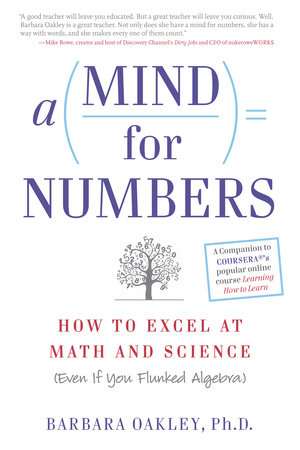TOPIC
Academic Struggles
In the United States, a typical student spends thirteen years of their life in the completion of primary and secondary school—and that’s without taking any form of higher education into account. The pressures of pursuing an education will almost inevitably weigh upon anyone at some point during that time, whether in the form of test anxiety, procrastination, conflicts with a teacher or classmate, or any number of other issues. On top of this, many students come to discover that they have added difficulties stemming from learning disabilities, which they must then adapt to. Luckily, modern research into the brain can help us understand how to positively cope with academic difficulty, and find ways to thrive and succeed in the pursuit of education.
FILTER
CLEAR ALL
BY TOPIC
BY TEACHER
BY TYPE
FILTER

TOPIC
- Young Adult Well-Being (99)
- Cognition (93)
- Parenting (88)
- Access to Education (85)
- Emotional and Mental Health (80)
- Child’s Emotional Growth (73)
- Connection (71)
- Child’s ADD/ADHD (70)
- Resilience (69)
- Social Justice (68)
- Mental Health Challenges (68)
- Asking for Help (67)
- Child’s Autism (67)
- Digital Life (66)
- Self-Acceptance (66)
- Self-Discovery (66)
- Communication Skills (66)
- Transitions (65)
- BIPOC Well-Being (65)
- Setting Limits and Boundaries (65)
- Memory (65)
- Child’s Challenging Behavior (65)
- Child’s Anxiety (65)
- Managing Energy (64)
- Identity (64)
- Self-Worth (64)
- Criticism and Rejection (64)
- Mentoring (64)
- Activism/Service (64)
- Talk Therapy (64)
- Suicide (64)
- Self-Reflection Practices (64)
- OCD (64)
- Inner Strengths (64)
- Gratitude (64)
- Child’s Social Media Addiction (64)
- Child Defiance (64)
- Burnout (64)
- Offering Support to Others (63)
- Failure (63)
- Grief (63)
- Depression (63)
- Curiosity (63)
- Time Management (62)
- Honoring Emotion (62)
- Search for Purpose (62)
- Child Depression (61)
- LGBTQIA Well-Being (60)
- Optimism (60)
- Gender Identity (60)
- Decision Making (59)
- Confidence (59)
- Play (56)
- Family Therapy (54)
- Relationship with Money (50)
- Trauma (48)
- Finding Meaning (47)
- Self-Limiting Beliefs (46)
- Cognitive Psychology (46)
- Facing Own Death (46)
- Existentialism (46)
- Self-Pressure (45)
- Imagination and Creativity (45)
- Problem Solving (44)
- Genetics (43)
- Psychology (43)
- Motivation (42)
- Goal Setting (40)
- Imposter Syndrome (39)
- Social Anxiety (39)
- Epigenetics (36)
- Social Psychology (36)
- Life Challenges (34)
- Empathy (32)
- Child’s Trauma (32)
- Family Dynamics (30)
- Bullying (30)
- Traumatic Grief (29)
- Neuropsychology (29)
- Focus (25)
- Stress Management (25)
- Anxiety (24)
- Unconscious Bias (23)
- Masculine/Feminine Dynamics (22)
- Male Friendship (22)
- Growth Mindset (17)
- Doubt (12)
- Black Well-Being (10)
- Grit (10)
- Financial Instability (9)
- Belonging (6)
- Neuroplasticity (5)
- Building Character (5)
- Patience (5)
- Friendship (4)
- Self-Care (4)
- Neuroscience (4)
- Self-Control (3)
- Emotional Intelligence (EQ) (3)
- Self-Development (3)
- Self-Discipline (2)
- Vulnerability (2)
- Peak Performance (2)
- Mindfulness (2)
- Habit Formation (2)
- Personal Development (2)
- Well-Being (2)
- Self-Esteem (2)
- Loneliness (2)
- Disabled Well-Being (1)
- Veteran Well-Being (1)
- Intention (1)
- Cross-Cultural Dynamics (1)
- Challenges with Teens (1)
- Acceptance (1)
- Self-Compassion (1)
- Storytelling (1)
- Fellowship and Community (1)
- Generosity (1)
- Happiness (1)
- Leadership (1)
- Brain Health (1)
- Habits of Mind (1)
- LGBTQIA Children (1)
- Work Ethic (1)
- Collaboration (1)
- Transformation (1)
- Sleep (1)
- Self-Actualization (1)
- Relationship Challenges (1)
- Mindfulness Practices (1)
- Longevity (1)
- Letting Go (1)
- Human Potential (1)
- Chronic Anxiety (1)
- Disconnection (1)
- Courage (1)
- Compassion (1)
WHAT MIGHT HELP
The information offered here is not a substitute for professional advice. Please proceed with care and caution.
EXPLORE RELATED TOPICS
- Focus
- Child Defiance
- Child Depression
- Child’s ADD/ADHD
- Child’s Anxiety
- Child’s Autism
- Child’s Trauma
- Compassion Fatigue
- Death and Dying
- Discrimination
- Financial Instability
- Gender Challenges
- Global Challenges
- Illness and Injury
- Incarceration
- Mental Health Challenges
- Parenting
- Relationship Challenges
- Social Justice
- Spiritual Crisis
- Transitions
- Trauma
- Work Challenges
- Learning Styles
UP NEXT
Learning Styles
Want More Like This?
To continue customizing your FindCenter experience, create an account. It’s free!
Create an account to discover wisdom, save your favorite content, and connect with teachers and seekers.
IT’S FREE
If you already have an account, please log in.





 There is no gain without struggle.
There is no gain without struggle.




